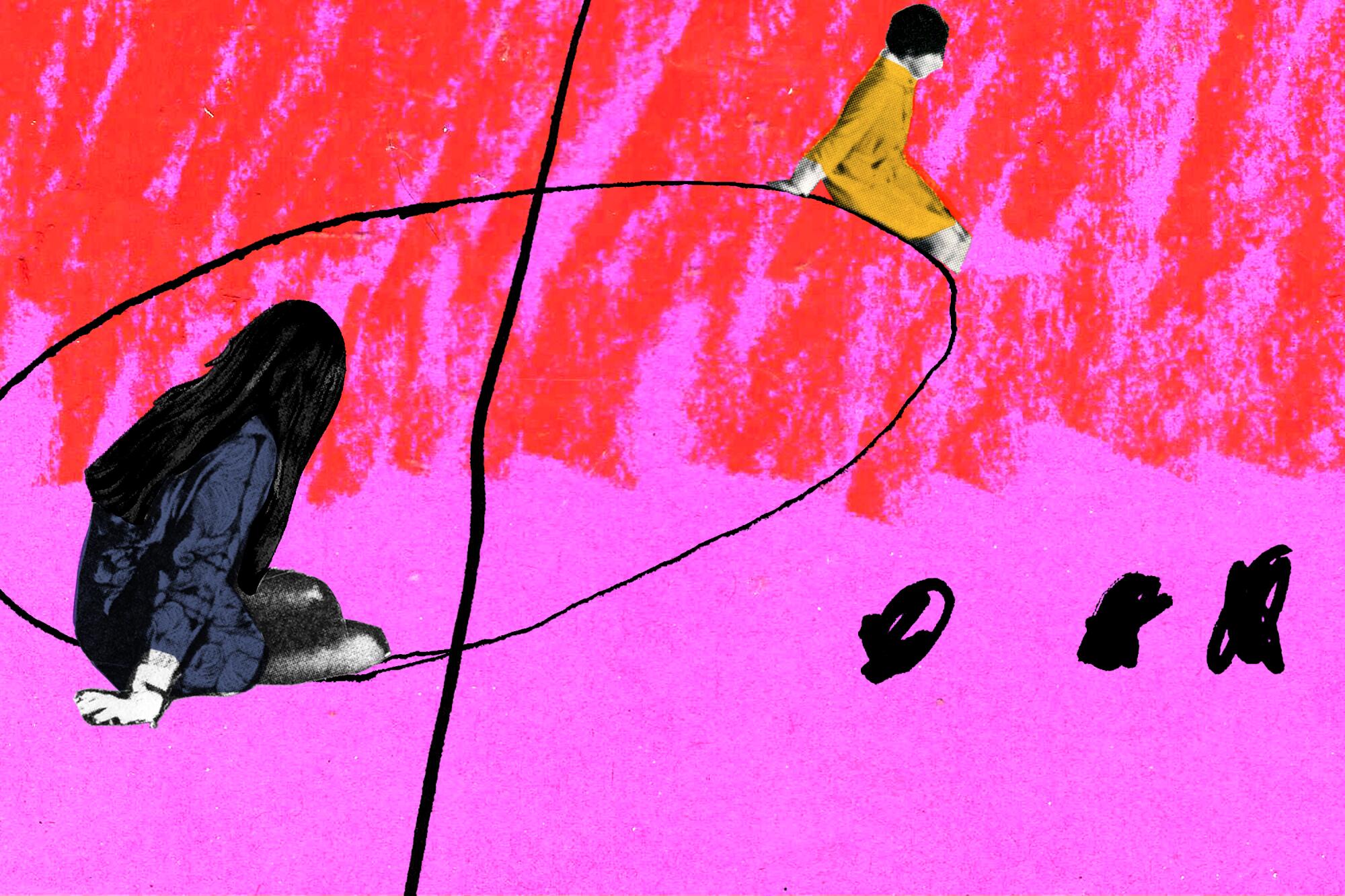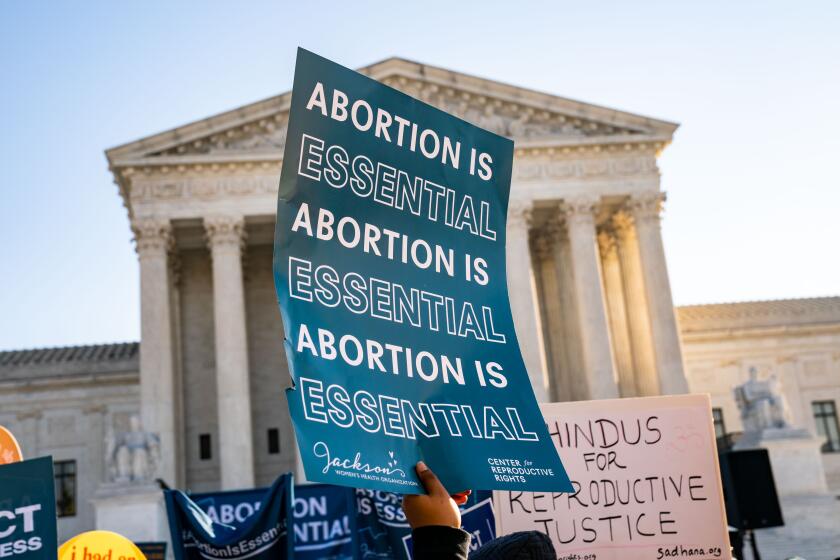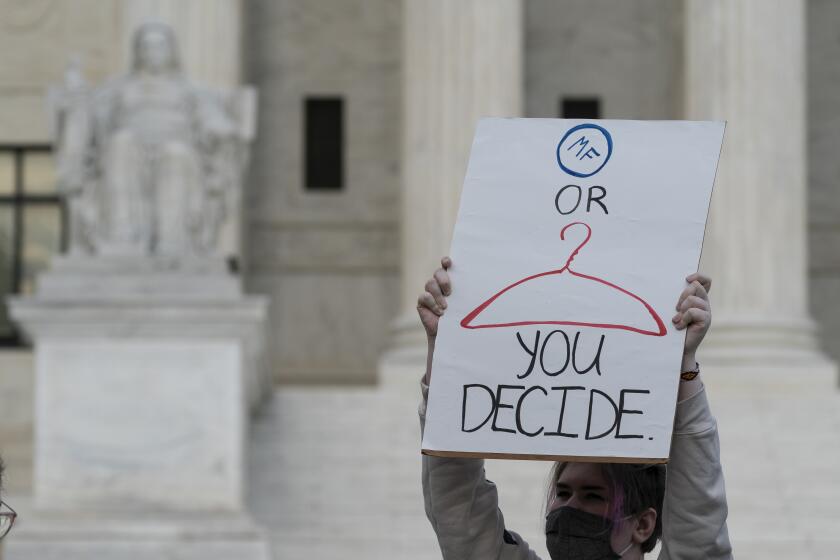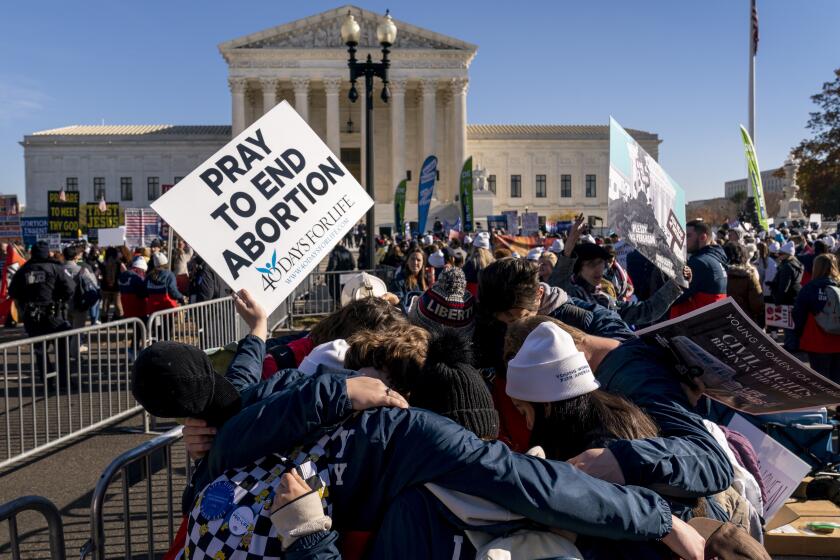
- Share via
“I wish you had never been born. I should have had an abortion.”
I can’t remember the first time my mother told me that. But I do remember the first time I responded differently, other than freezing in place or bursting into tears.
I was living with my grandmother in Mason, Ohio, a suburb of Cincinnati, and my mother was visiting. We moved constantly and were never in the same place for too long, so I called our house by the name of the street where it was located, to give myself roots. There’s the Jefferson Avenue house, the Mason-Montgomery house. The Cowan Drive apartment. Sometimes we were evicted; other times, I’m not quite sure why we moved.
We cannot let abortion be stigmatized by a minority that holds extreme views on what is a crucial human right.
I was in middle school, and by then I had an inkling of what must have happened. Not having a father. Raised by my grandmother, alongside her other children, my aunts and uncles. Everything about me and my identity was shrouded in secrecy.
I yelled back, “What were you, raped?”
My mother froze and then stormed out our white door, into the sunlight. I collapsed in tears, as I always did whenever we fought, which was most of the time. Most of the time, that is, when we saw each other.
You see, my mother was only 15 years old when she had me. Because of that, I had lived with my grandma since I was born. One exception was when I was about 7. I tried to live with her for a year or so. The experiment failed.
In that moment, after my mother stormed out the front door, I felt unloved. Unlovable.
My life has come a long way since my childhood, which was marked by tears and pain. I’ve achieved many accomplishments — PhD from Princeton, a tenure-track job at a research university, fellowships, grants, awards and two children. Many people who are against abortion rights would look at me, and say, “See — you’re here and have accomplished so much.”
Only one happened in the cover of night and involved a lot of pain.
I could be a poster child for antiabortion activists and the Supreme Court justices who would use my life as an example of a “good” result in forcing someone with a uterus to carry a pregnancy full-term. Yet those forces rarely seem to care about policies that would support the needs of the parent and the child after birth.
I support abortion rights. I’m pro-bodily autonomy for every person. And why is that? It’s because my mother needed to have that choice. And focusing on what I’ve achieved says nothing about what my birth cost her — the trauma etched into her body forever. The stretch marks, the mental anguish. The years, the decades of pain and struggle.
I often wonder what her life would have been like if she hadn’t had me when she was so young. Would she have been able to go to college? Would she have been able to break a cycle of abusive relationships? Would she have had a happy life?
It’s clear my own mother — at least at times — had wanted to abort me but didn’t. But aborting me wouldn’t have stopped her pain. She was raped more than once over the course of her childhood by someone who should have protected her.
A focus on my accomplishments also misses the mixture of self-hatred, anger and worthlessness that is etched on my bones from my childhood. My own thoughts of how if my own mother couldn’t love me, who could? What more could I do? My nose. My height. My wide shoulders. Who knows what else? All carrying the telltale signs of my father. A rapist.
Republicans want to ban abortion but have not proposed measures to help pregnant women and their children once they are born.
My mother and I are not alone in the trauma we both suffered. So many women have had similar experiences and histories of sexual violence. These are not new stories. It’s been going on for centuries and continues today. And this violence tells women implicitly that we are unworthy of being safe.
The right to personal and bodily autonomy is what is denied to victims of sexual violence. For me, restoring that autonomy means supporting the right to make the choice to have an abortion. It means having meaningful access to healthcare and resources that can help survivors in our communities.
I am the product of rape and I see what that did to my mother. And no, I don’t think the world is made better because I’m here.
If antiabortion activists are adamant every life matters, why don’t they care about the women who are raped or others who will be forced to give birth if abortion rights are destroyed? What about their well-being? Their health and safety?
Why do they value a cluster of cells or a fetus that can’t survive outside the body more than the life of a person?
Victoria Reyes is an assistant professor in the department of gender and sexuality studies at UC Riverside. This article is adapted from her forthcoming book, “Academic Outsider: Stories of Exclusion and Hope.”
More to Read
A cure for the common opinion
Get thought-provoking perspectives with our weekly newsletter.
You may occasionally receive promotional content from the Los Angeles Times.













